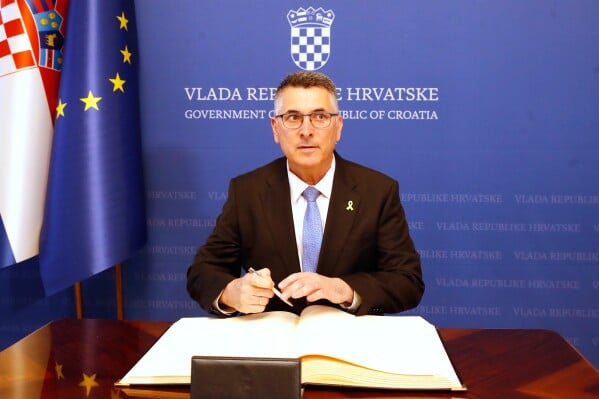EU Urges Sanctions and Tariffs on Israel Amid Middle East Conflict, Targeting Key Imports

The European Union has taken a significant step in its efforts to pressure Israel to end the ongoing conflict in Gaza, which has persisted for 23 months. On Wednesday, EU foreign policy chief Kaja Kallas proposed a series of sanctions targeting Israeli goods and key government officials. This initiative aims to compel the Israeli government to alter its course and alleviate the humanitarian crisis in Gaza, where the toll of the conflict has been devastating.
Proposed Sanctions and Economic Impact
Kaja Kallas has urged the 27 EU member states to implement higher tariffs on certain Israeli imports and impose sanctions on specific Israeli officials, including national security minister Itamar Ben-Gvir and finance minister Bezalel Smotrich. The proposal also includes sanctions against ten leaders of Hamas. Kallas emphasized that these measures are not intended to punish the Israeli populace but to exert pressure on the government to change its approach and end the suffering in Gaza. If enacted, the sanctions would freeze the European assets of those targeted and restrict their travel within the EU.
As the EU is Israel’s largest trading partner, the proposed sanctions could have significant economic repercussions. The EU Commission has indicated that approximately 32 million euros ($37.5 million) in bilateral funds would be frozen, although financial aid to the Palestinian Authority would continue. Israel’s economy has already been adversely affected by the prolonged conflict, and these new measures could exacerbate the situation.
Growing Tensions Between Europe and Israel
The relationship between Europe and Israel has become increasingly strained, particularly in light of the ongoing violence in Gaza. European Commission President Ursula von der Leyen, previously viewed as a staunch ally of Israel, recently stated that Europe must apply pressure on Israel regarding its military actions. In response, Israeli foreign minister Gideon Saar accused von der Leyen of aligning with terrorists and asserted that Israel would not yield to external pressures while prioritizing its national security.
The EU’s proposed sanctions reflect a growing divide among its member states regarding how to address the situation in Israel and Gaza. Protests against the violence have erupted across Europe, with demonstrations occurring in cities such as Amsterdam and Barcelona. These events have raised concerns about whether the EU is doing enough to mitigate the conflict and provide humanitarian assistance.
Internal Divisions Within the EU
Despite the urgency of the situation, the 27 EU countries remain divided on the best course of action regarding Israel. It is uncertain whether a majority will support the proposed sanctions and trade measures. The ongoing bloodshed in Gaza has prompted widespread public outcry, leading to calls for more decisive action from Brussels. Health officials in Gaza reported that over 65,000 Palestinians have died since the conflict escalated on October 7, 2023, following a Hamas attack on Israel.
European Commission trade chief Maros Sefcovic characterized the proposed sanctions as a “carefully considered response to an increasingly urgent situation.” However, the internal divisions within the EU could hinder the implementation of these measures, as member states weigh their diplomatic relationships with Israel against the humanitarian crisis unfolding in Gaza.
Details of the Tariff Proposal
If the proposed sanctions receive approval, tariffs amounting to approximately 230 million euros ($166 million) would be levied on around 37% of Israeli goods imported into the EU, which currently total about 15.9 billion euros annually. These goods currently enter the EU tariff-free under an existing Association Agreement. An EU review earlier this year found that Israel had violated the human rights commitments outlined in this agreement, known as Article 2.
While critics have called for a complete suspension of the trade deal with Israel, the current proposal only seeks to remove the zero-tariff benefit for certain goods, which would then be subject to standard World Trade Organization tariffs ranging from 8% to 40%. The proposal follows von der Leyen’s recent call for sanctions and a partial trade suspension with Israel, reflecting the growing momentum for action in response to the ongoing conflict. However, it is important to note that Israeli arms exports to the EU would remain unaffected by these measures.
Observer Voice is the one stop site for National, International news, Sports, Editor’s Choice, Art/culture contents, Quotes and much more. We also cover historical contents. Historical contents includes World History, Indian History, and what happened today. The website also covers Entertainment across the India and World.
Follow Us on Twitter, Instagram, Facebook, & LinkedIn

